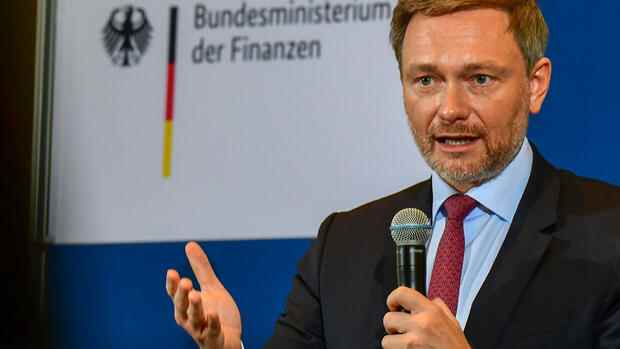Berlin On November 2nd, the federal and state governments want to discuss the third energy relief package. The date was chosen deliberately. Chancellor Olaf Scholz (SPD) and the prime ministers first want to wait for the results of the tax estimate before they talk again about how they want to finance the third relief package. The last meeting was unsuccessful.
According to Handelsblatt information, the tax estimate is surprisingly good: the federal, state and local governments can expect additional income of over 100 billion euros by 2026. Nevertheless, the dispute as to which part of the 65 billion euro package should be taken over by the federal government and which by the states has not been resolved. The suspension of the debt brake is now at the center of the discussion.
The 16 federal states are almost unanimously calling on the federal government to declare an “emergency” with regard to the debt brake. This would allow countries to take the emergency option and incur unlimited debt over the next year.
The prime ministers are convinced that they will not be able to bear the costs of the third relief package without higher debts. Especially since the debt brake prohibits the countries from taking out any other loans in the coming year.
Top jobs of the day
Find the best jobs now and
be notified by email.
Federal Finance Minister Christian Lindner (FDP) sees things differently. According to Handelsblatt information from government circles, his in-house lawyers come to the conclusion in an analysis that determining the emergency is not easy from a legal point of view.
In addition, the states themselves would have the option of suspending their debt brakes without the federal government doing so. The state constitutions allowed this possibility by declaring a “regional emergency”. The states, on the other hand, say that declaring a regional emergency is legally tricky. That is why the federal government must go ahead.
>> Read here: “We are facing at least three difficult years” – savings banks fear a loss of prosperity due to inflation
Scholz had already spoken to the federal states about the debt brake at the prime ministers’ conference in early October. At another meeting last Friday, the topic really boiled up. At times, according to some media reports, it seemed as if the federal government could also suspend the debt brake in 2023 if an emergency was declared. For the traffic light coalition, that would be unparalleled political explosives. Because FDP boss Lindner definitely wants to comply with the debt brake again in 2023.
The federal government can do that too, argue the states. Since the debt brake is enshrined in the Basic Law, the determination of an emergency at the federal level would make it easier for the states to suspend their debt brakes. According to the participants, Chancellor Scholz was open to this in the round last Friday.
The federal government refers to surpluses in the federal states
In the Federal Ministry of Finance, however, such an approach is not considered necessary – also with reference to the current financial situation of the federal and state governments. While the federal government is planning new debts of 140 billion euros this year, the federal states would have achieved a surplus of around 24 billion euros in the first eight months alone. “In the current year, the federal states are showing a high surplus, and in the event of a poor development, extensive reserves are usually available,” says the new Bundesbank monthly report.
The financial situation of the municipalities, which are under the financial care of the federal states, is by no means catastrophic. According to calculations by municipal expert René Geißler, their reserves have risen to 66.5 billion euros despite all the crises in the previous year. Lindner also fears that if an emergency is identified for the federal states, calls for higher debts will also become louder in the federal government.
More: 110 billion euros in additional revenue – inflation provides the state with cash rain
